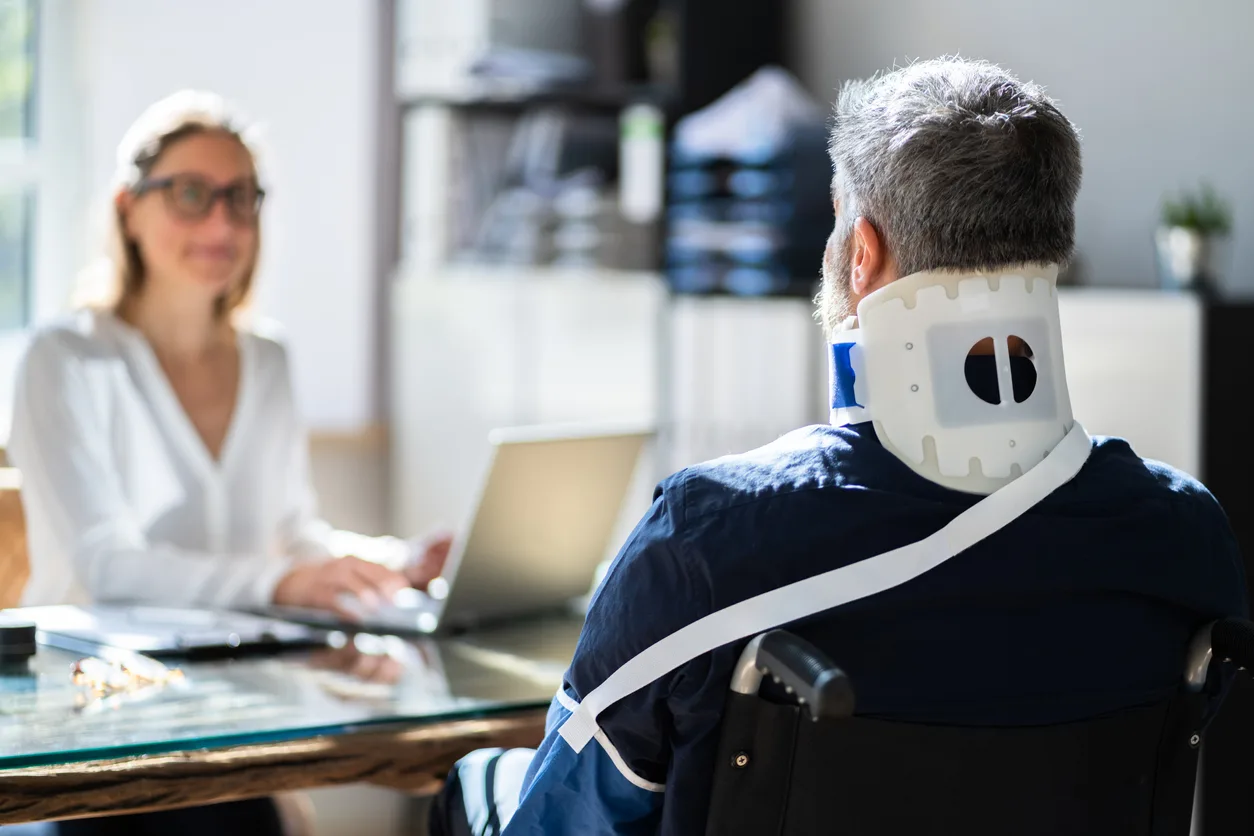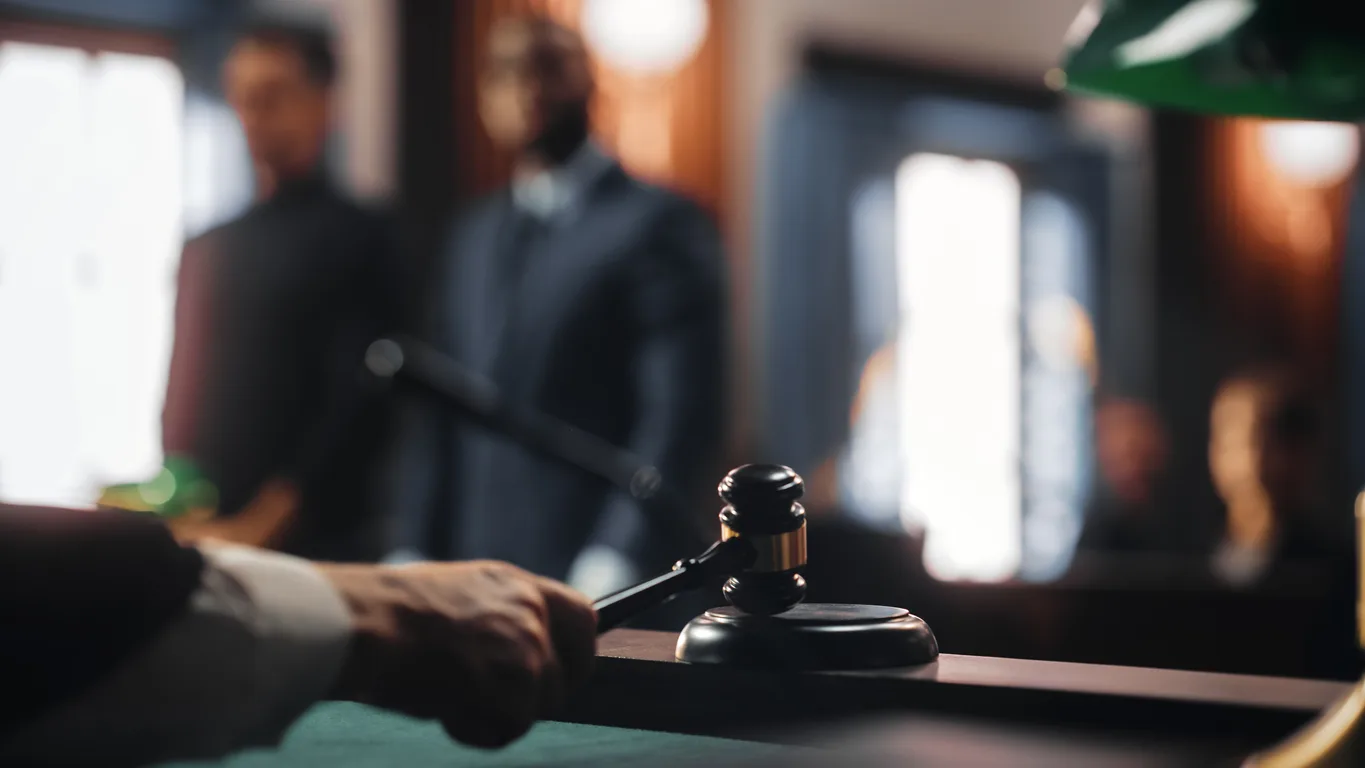Home > Resources > Will My Personal Injury Case Go to Trial?
Will My Personal Injury Case Go to Trial?

After an accident or personal injury in Texas, most personal injury cases begin with an insurance claim. Most individuals and businesses have liability insurance to cover various situations. Examples of liability insurance include, but are not limited to, automobile insurance, homeowner’s insurance, property insurance, malpractice insurance, and general liability coverage.
Many insurance claims are settled without the injured party filing a lawsuit. However, even if you file a personal injury lawsuit, the insurance company may settle your case before trial. It is crucial to have an experienced trial lawyer handling your case throughout this process.
At Zehl & Associates, we refuse settlement offers that do not provide our clients with the compensation they need and deserve. Because we prepare each case for trial, we are equipped and ready to proceed to trial when parties refuse to negotiate in good faith. At trial, we remain undefeated.
Understanding what happens when a personal injury case goes to trial in Texas helps ease your stress. We’ve put together this guide to personal injury trials to give you an overview of what to expect if your case goes to trial in Houston, TX.
Table of Contents
- Selecting a Jury
- Opening Statements
- Presenting the Case
- Closing Arguments and Jury Instructions
- Jury Deliberation and Verdict
- Payment of a Judgment
- Contact Us by Calling 1-888-603-3636 To Schedule Your Free Consultation With Our Unbeaten Houston Personal Injury Lawyers
Selecting a Jury

A juror is someone selected to serve on a jury in a civil or criminal trial. The civil court hears personal injury lawsuits. Depending on the court, six or twelve individuals are selected to serve on the jury from a pool of potential jurors.
The juror selection process can be complicated and lengthy, depending on the type of case. Each side can ask potential jurors questions to determine if they hold beliefs or opinions that prevent them from being impartial triers of fact.
Both sides have a specific number of “strikes” they can use if they believe a person is unsuitable to serve as a juror for their case.
Opening Statements
After the jury is selected and sworn into service, each side has the opportunity to make opening statements. The plaintiff (injured party) begins. Since the plaintiff has the burden of proving the defendant’s (alleged at-fault party) liability, the plaintiff’s lawyer usually lays out a roadmap of the case, including how they intend to prove the defendant caused the plaintiff’s injuries.
The defendant’s lawyer typically explains the facts and evidence they will introduce that proves the defendant is not responsible for the plaintiff’s damages. The defendant may raise allegations of contributory fault and failure to mitigate damages as a way to diminish the defendant’s liability for damages.
Presenting the Case
The plaintiff presents their case first, followed by the defendant. Evidence in a personal injury trial depends on the facts and type of case being tried. Examples of evidence a party may present at trial include:
- Testimony from the parties to the action
- Testimony from eyewitnesses
- Physical evidence, including photos, videos, medical records, and more
- Testimony from expert witnesses, including accident reconstructionists, medical specialists, and vocational experts
The attorney calling a witness questions the witness first. The other attorney has the opportunity to cross-examine the witness about the testimony they provided.
Your Houston personal injury lawyer prepares you for court by reviewing the case facts with you, the process followed in court, and how to conduct yourself during your testimony. Experienced personal injury attorneys work extensively with their clients in the weeks before the court to ensure they are comfortable and at ease throughout the trial.
Closing Arguments and Jury Instructions
The attorneys end the trial with closing arguments. The plaintiff’s attorney is first. Since most cases are based on negligence, a seasoned personal injury lawyer reminds the jurors of the evidence presented and how the evidence proves:
- The defendant owed a legal duty of care to the plaintiff
- By failing to use a reasonable standard of care, the defendant breached the duty of care
- The defendant’s conduct directly and proximately caused the plaintiff’s injuries
- The plaintiff sustained harm and damages because of the defendant’s actions
These are the legal elements required to establish negligence liability.
At the end of the closing arguments, the judge instructs the jurors on the procedure for deliberation, including their duties. The judge explains the relevant laws that apply in the case so the jurors understand what the plaintiff must prove to establish causation, fault, and liability.
Jury Deliberation and Verdict
Jury deliberations are confidential. The jurors are the only people in the room. The jurors decide what evidence they believe and if that evidence proves that it is more likely than not that the defendant caused the plaintiff’s injuries. Depending on the complexity of the case, jury deliberations could last several hours, days, or weeks.
In a personal injury lawsuit, the burden of proof is by a preponderance of the evidence. Therefore, the jurors only need to find that the plaintiff’s argument is more likely true than untrue.
If the jurors find the defendant is liable for the plaintiff’s injuries, they must decide how much to award for damages. Nine of the 12 jurors must agree on the amount of damages to be awarded to the plaintiff.
Damages include the plaintiff’s financial losses or economic damages, such as lost wages, out-of-pocket expenses, and medical bills. The award may also include non-economic damages to compensate the plaintiff for their pain and suffering.
Payment of a Judgment
The verdict is binding on both parties. A party may appeal the decision, but a court only overturns the decision if there is a legal reason to do so. Otherwise, the jury verdict stands.
The insurance company for the defendant is only responsible for the amount of the judgment up to the insurance policy limits. Therefore, you may receive a portion of the judgment from the insurance company.
The defendant is personally liable for the remaining amount. You may need to pursue additional legal action if the defendant does not pay the remaining balance of the judgment.
Contact Us by Calling 1-888-603-3636 To Schedule Your Free Consultation With Our Undefeated Houston Personal Injury Lawyers
Our Houston personal injury attorneys have won billions for our clients in verdicts and settlements. We are seasoned trial lawyers who have secured some of the largest recoveries in state history. Contact us today at 888-603-3636 to get started with a free consultation if you’ve been hurt in an accident.
FREE CASE REVIEW
Fill Out the Form Below for a Free Case Review with our Undefeated Personal Injury Lawyers
All communications are private and confidential. This site is protected by reCAPTCHA and the Google Privacy Policy and Terms of Service apply.